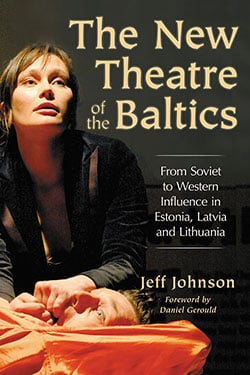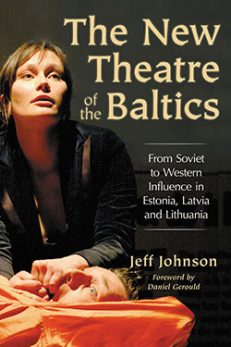The New Theatre of the Baltics
From Soviet to Western Influence in Estonia, Latvia and Lithuania
Original price was: $39.95.$19.99Current price is: $19.99.
In stock
About the Book
Although Estonia, Latvia and Lithuania are culturally distinct, they share a common theatre history characterized by resistance, first as a response to Nazi occupation, then as an ideological weapon countering their annexation under strict Soviet ideology.
This comprehensive overview of contemporary theatre in the Baltic states includes interviews with major directors, writers, academics and critics, critiques of significant performances, and historical information to familiarize readers with the region. It not only discusses the political ramifications of the three countries’ transition from occupied Soviet states to independent members of the European Union, but also addresses the aesthetic, cultural and national issues associated with the move to independence and the adaptation of a Western economic model.
More than an introduction, this book is a forum for ideas as well as a detailed, first-hand account of the current scene in Baltic theatre. While useful for anyone interested in contemporary theatre, it is also essential reading for those interested in Baltic studies, post–Soviet cultural history, and recent trends in East European literature.
About the Author(s)
Bibliographic Details
Jeff Johnson
Foreword by Daniel Gerould
Format: softcover (6 x 9)
Pages: 232
Bibliographic Info: 35 photos, notes, bibliography, index
Copyright Date: 2007
pISBN: 978-0-7864-2992-9
eISBN: 978-1-4766-0893-8
Imprint: McFarland
Table of Contents
Acknowledgments vii
Foreword by Daniel Gerould 1
Preface 5
1. The Crisis of Relevance 11
2. Lithuania: Catholic Spectacle—Directors’ Theatre 30
3. Estonia: The Lutheran Narrative—Writers’ Theatre 93
4. Latvia: Focus on Process—Actors’ Theatre 156
Notes 211
Works Cited 213
Index 217
Book Reviews & Awards
- Honorable Mention, AABS Book Prize—Association for the Advancement of Baltic Studies
- “Details the challenges Baltic artists face in renewing the vitality of the post–Soviet theater, preserving linguistic identity, and creating work accessible to both the home culture and the larger world…recommended”—Choice
- “Highly informative, interesting and thought-provoking…deserves the attention of as many readers as possible”—Journal of Baltic Studies
- “Fascinating…an insightful cultural history of the region”—Theatre Journal





